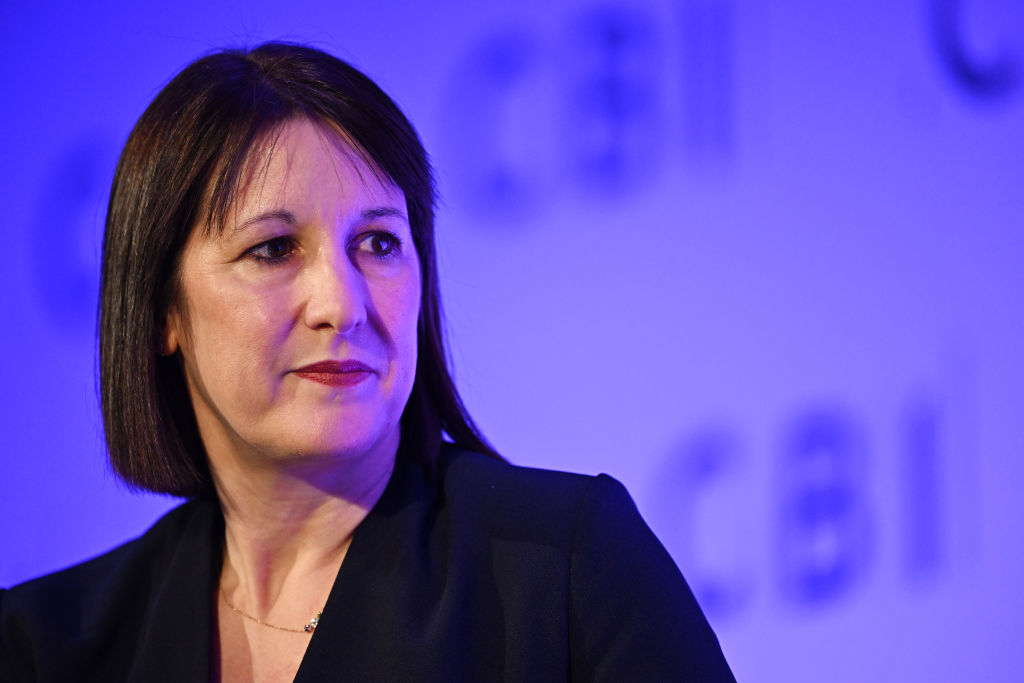It wasn’t exactly the Christmas cheer Rachel Reeves had been hoping for.
On Monday, the Office for National Statistics reported that the UK economy failed to grow in the third quarter, a reduction from the original estimate of modest expansion. And with the October figure on GDP growth now coming in at slightly less than zero, the risk of a second quarter without growth — or worse — is rising. In short, far from the renewed economy Reeves promised us all, the UK may be heading into a recession.
In fairness to the Chancellor, her government has four more years in which to deliver, so an early stumble isn’t itself a problem. What’s more, if this lump of coal is on the government, it’s on both Labour and its predecessors, considering that the outgoing Tories left her a dreadful inheritance. Their obsession with tax cuts — which over 14 years led successive chancellors to degrade public services so badly that the economy went backwards — and hastily negotiated Brexit deal with Europe would have hamstrung any government.
However, Reeves made her task even harder by failing to ask for a mandate for the kind of bold reform the economy requires. On the election campaign trail earlier this year, she promised to restart the economy and repair public services while matching fanciful Tory promises not to raise most taxes.
That left her to focus any tax rises on business, in particular the National Insurance contributions which employers must pay for their employees. This added cost of creating jobs has, unsurprisingly, led firms to curtail job-creation, while business investment may also suffer in response. That, at least, is the pre-Christmas message from the Confederation of British Industry, which warns that “businesses continue to cite the impact of measures announced in the Budget — particularly the rise in employer National Insurance contributions — exacerbating an already tepid demand environment”.
Making matters worse, neither Reeves nor Prime Minister Keir Starmer did themselves any favours with their negative messaging in the months leading up to her Budget. The state of the economy and the public finances is undoubtedly bad. However, hammering home that message may have killed any animal spirits they wanted to stir. Investors awaiting a turnaround before investing could now create a self-sustaining doom loop: few jobs are created, demand thus drops, and so new investment is further postponed.
It needn’t be this way, though, because bad news can be delivered with a happy ending. In 1982, during the depths of a recession his government’s policies had helped to worsen, Ronald Reagan delivered his first State of the Union address. In a masterclass of hope-filled oratory, he laid out a vision of how the painful process through which America was passing would ultimately lead to a renewed economy — as it duly did, when in the late summer of 1982 the stock market bottomed and a decades-long bull market began.
That sort of strategic vision has been lacking in the communications of both the Prime Minister and the Chancellor, who sound more like grumpy Calvinists insisting that suffering is good for us. Time may, as Reeves insists, allow her programme to deliver fruit. But if things don’t improve soon, the pressure may rise either for her to abandon her earlier promises on taxes or for the Prime Minister to abandon her.











Join the discussion
Join like minded readers that support our journalism by becoming a paid subscriber
To join the discussion in the comments, become a paid subscriber.
Join like minded readers that support our journalism, read unlimited articles and enjoy other subscriber-only benefits.
Subscribe